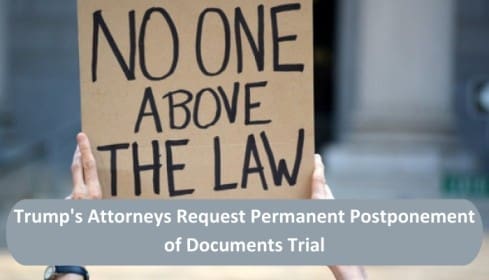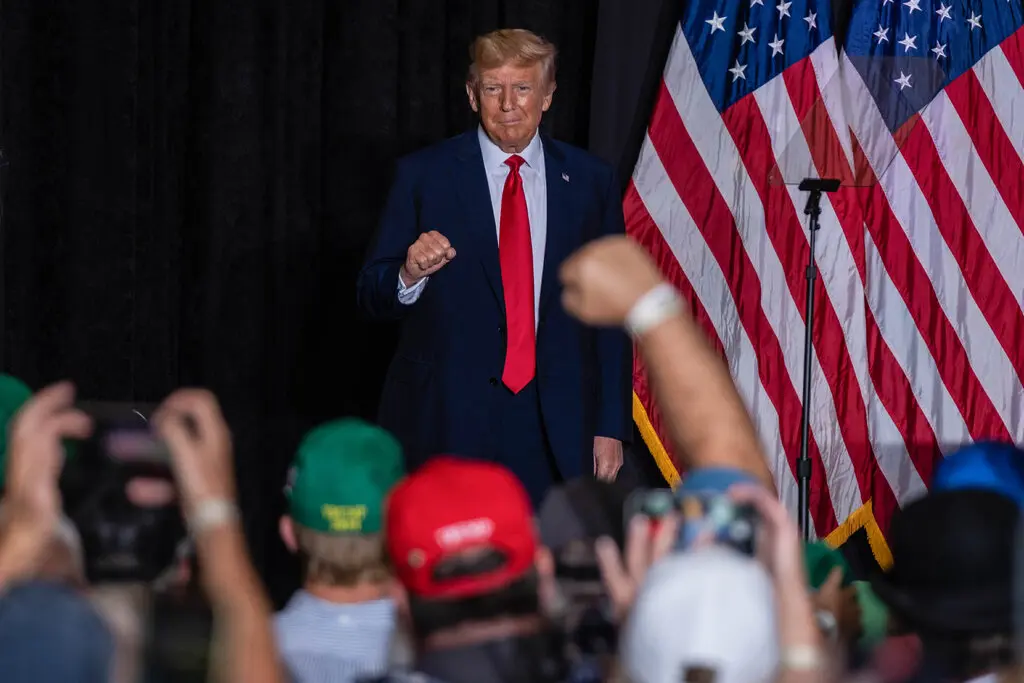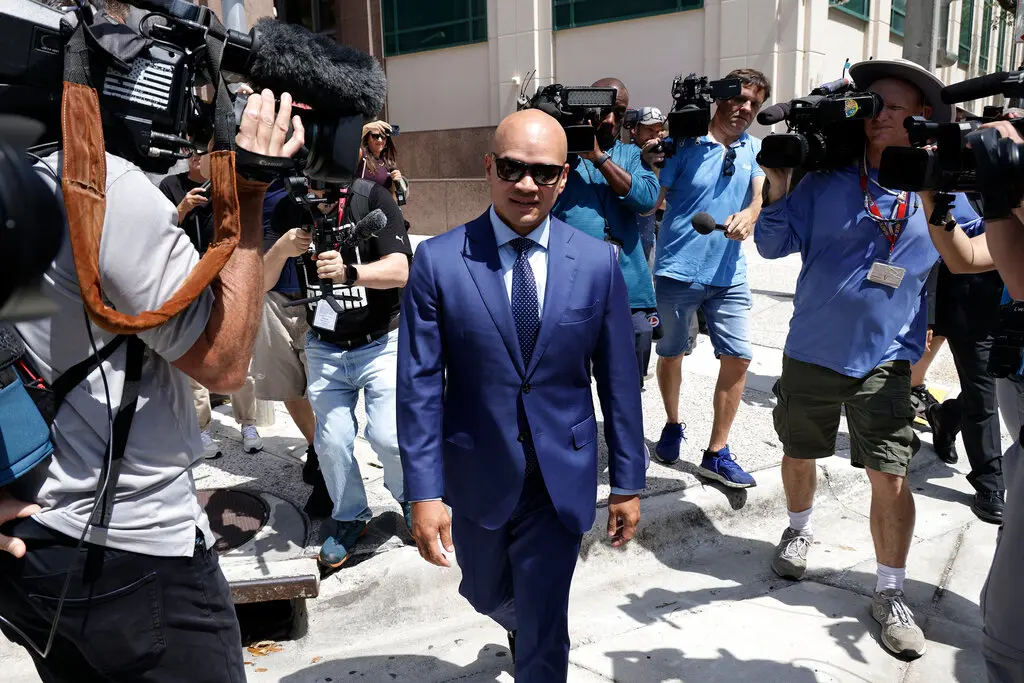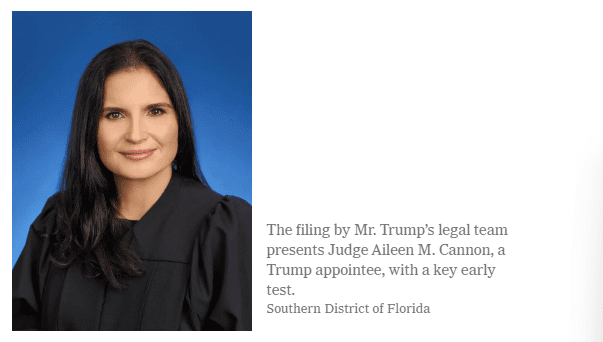In a court filing, the former president’s legal team argued that a trial date should not be set until all “substantive motions” in the case have been resolved, setting the stage for an important decision by Judge Aileen M. Cannon.

Monday night, attorneys for former President Donald J. Trump asked a federal judge to postpone his trial on charges of illegally retaining classified documents after he left office indefinitely. They argued that the trial should not begin until all “substantive motions” in the case have been presented and decided.
Judge Aileen M. Cannon, a Trump appointee who is overseeing the case, faces an important early test with the filing, which was submitted 30 minutes before the deadline of Tuesday at midnight. If granted, it could extend Mr. Trump’s trial into the concluding phases of his current presidential campaign as the Republican front-runner, or even beyond the 2024 election.
Timing is crucial in any criminal case, but in Mr. Trump’s case, in which he is accused of unlawfully holding on to 31 classified documents after leaving the White House and obstructing the government’s repeated efforts to reclaim them, it could have enormous implications.
If Mr. Trump is simultaneously a candidate in the final stages of a presidential campaign and a federal criminal defendant on trial, the court could face unprecedented complications. If the trial is postponed until after the election and Mr. Trump wins, he may attempt a self-pardon or have his attorney general dismiss the case entirely.

In private conversations, some of the former president’s advisors have stated bluntly that he hopes winning the election will resolve his legal issues. And the request for an indefinite postponement of the trial of Mr. Trump and his co-defendant, personal assistant Walt Nauta, poses a high-stakes question for Judge Cannon, who was already under scrutiny for making decisions favourable to the former president during the investigation’s early stages.
The filing was in response to one submitted last month by special counsel Jack Smith’s prosecutors, who requested a December 11 trial date. Judge Cannon, seemingly adhering to the expedited schedule mandated by the Speedy Trial Act, had initially scheduled the trial to begin in August.
Judges have broad discretion in setting trial schedules, and scheduling decrees are typically not subject to appeal. Nevertheless, given the extraordinary nature of Mr. Trump’s case and the potential ramifications of a delay, prosecutors under Mr. Smith could in theory attempt to find a reason to appeal a scheduling decision made by Judge Cannon to the 11th Circuit Court of Appeals.
The attorneys for Mr. Trump presented their request to Judge Cannon as an argument for circumspect deliberation and a means of protecting democracy.
The lawyers, Chris M. Kise and Todd Blanche for Mr. Trump and Stanley Woodward Jr. and Sasha Dadan for Mr. Nauta, wrote, “This extraordinary case poses a grave challenge to both the reality and perception of our American democracy.”

They wrote, “The court is currently presiding over a prosecution brought by the administration of a sitting president against his chief political rival, himself a leading candidate for the presidency of the United States.” “Therefore, the interests of the defendants and the public are best served by a measured consideration and timeline that permits a thorough review of the procedures that led to this indictment and the unprecedented legal issues presented here.”
The attorneys also noted the uncommon intersection of law and politics in the case, indicating that Mr. Trump’s status as a presidential candidate should influence the trial’s scheduling.
“President Trump is running for president of the United States and is currently the most likely Republican Party nominee,” they wrote. This endeavour requires a great deal of time and effort, and it will continue until the election on November 5, 2024.
“Mr. Nauta’s job requires him to accompany President Trump on the majority of his nationwide campaign trips,” they continued. “This timetable makes trial preparation with both defendants difficult. Such planning requires considerable time and effort.”
And they suggested there is no justification for a speedy trial.
“While the government appears to favour an expedited (and therefore superficial) approach to this case, it cannot cite any exigency or urgency necessitating a swift decision,” they wrote. There is no ongoing threat to national security interests and no cause for concern about ongoing criminal activity.
On Monday, hours before Mr. Trump’s attorneys requested a postponement in the trial, Mr. Nauta’s attorney asked Judge Cannon to postpone a hearing scheduled for Friday to address the issue of classified materials in the case. The defence and prosecution ultimately agreed to postpone the hearing until next Tuesday, which will take place in Federal District Court in Fort Pierce, Florida.
In a terse order issued on Tuesday morning, Judge Cannon approved the rescheduling.
In arguing for a trial postponement, Mr. Trump’s attorneys cited the extensive discovery evidence provided by the government.

According to them, the initial discovery disclosure included more than 833,450 pages of material, including approximately 122,650 emails and 305,670 other documents. The solicitors stated that they would likely submit additional requests for information to the government following the delivery of additional evidence troves.
They also cited the Classified Information Procedures Act’s complex procedure for determining how to manage the sensitive materials at the core of the case — the subject of the hearing that had been scheduled for Friday. The solicitors firmly implied that they would oppose the government in the pre-trial litigation concerning classified information, a procedure that could take a considerable amount of time.
“Generally speaking, the defendants believe that there should be no’secret’ evidence or facts concealed from public view in the prosecution of a leading presidential candidate by his political opponent,” the attorneys wrote. Our democracy demands nothing less than complete openness.
In addition to its request for a deferral, the filing provided a preview of Mr. Trump’s legal strategy, as his attorneys detailed their plans to assault his indictment.
They implied, for instance, that they intended to contest some of the allegations against him by contending that the Presidential Records Act allowed Mr. Trump to remove documents from the White House. This interpretation of a law from the Watergate era is at odds with how legal experts interpret it and was unsuccessful during a protracted legal battle last year over an outside arbiter appointed to review a trove of documents seized by the F.B.I. from Mr. Trump’s Florida private club, Mar-a-Lago.
In addition, the former president’s attorneys indicated that they may raise “constitutional and statutory challenges” to Mr. Smith’s special counsel authority. In addition, they set the groundwork for doubting whether an impartial jury could be selected for the trial while Mr. Trump ran for office.
“There is simply no doubt that any trial of this action during a presidential election will affect both the outcome of that election and, more importantly, the defendants’ ability to obtain a fair trial,” they wrote.

